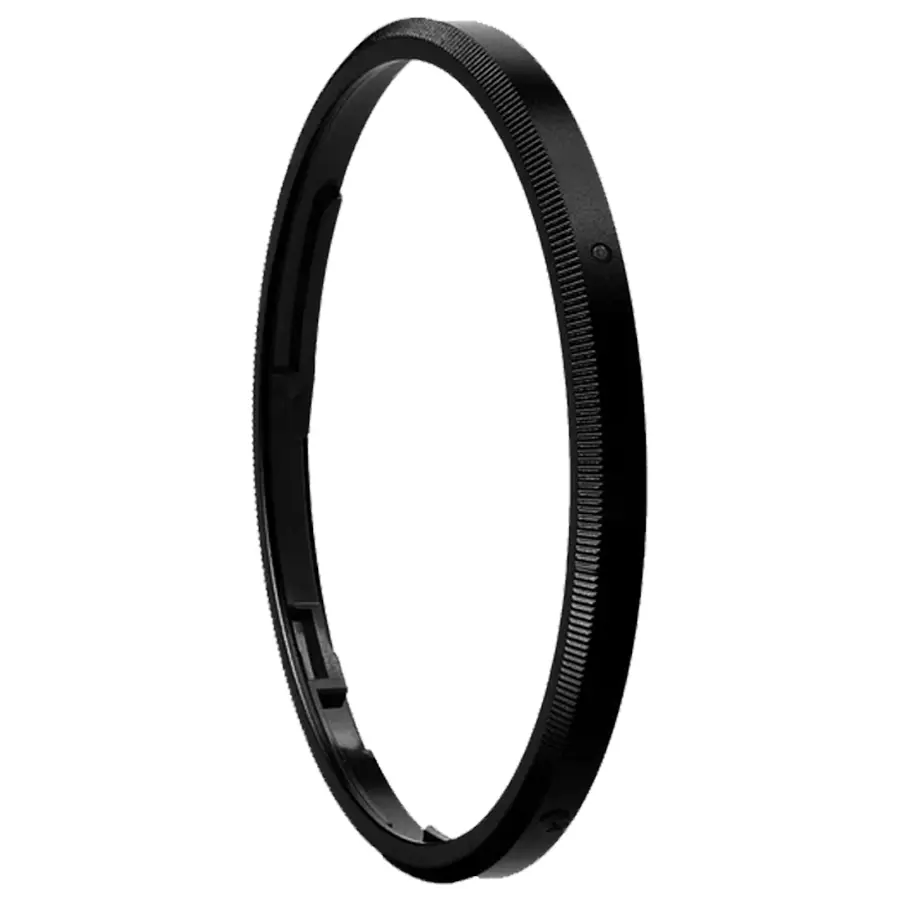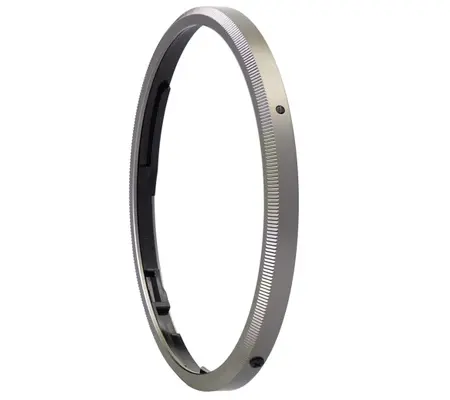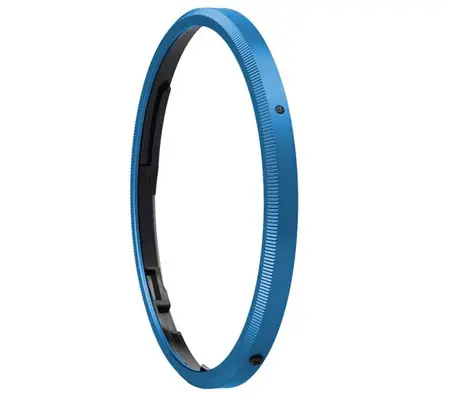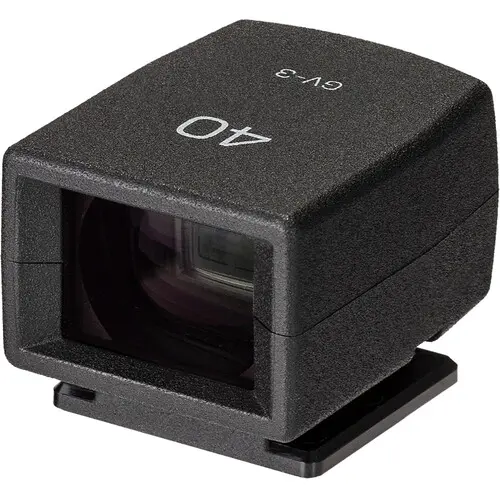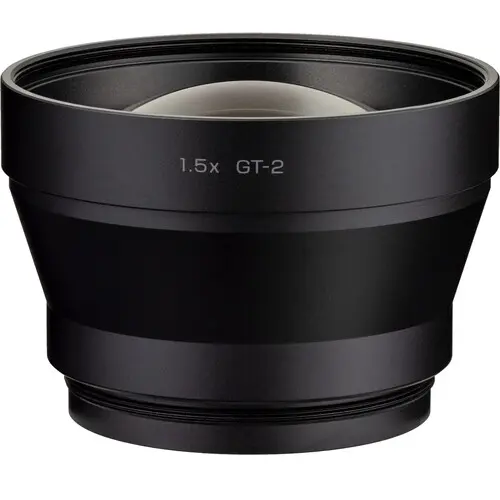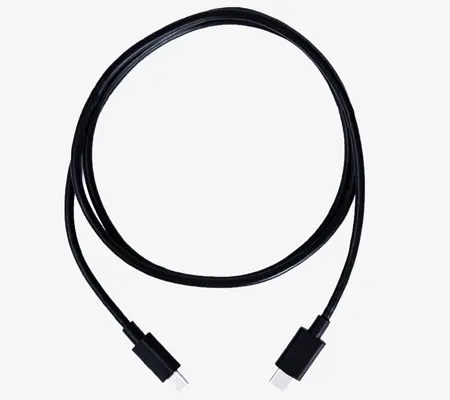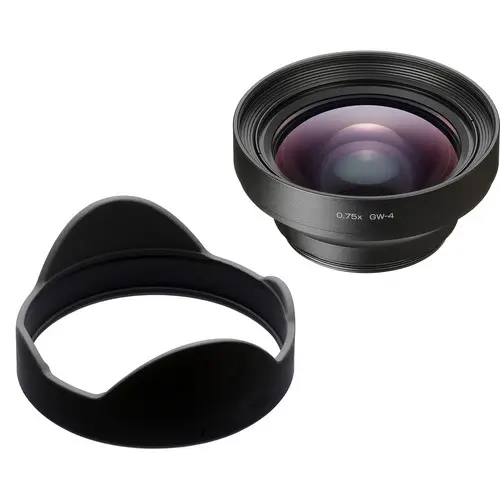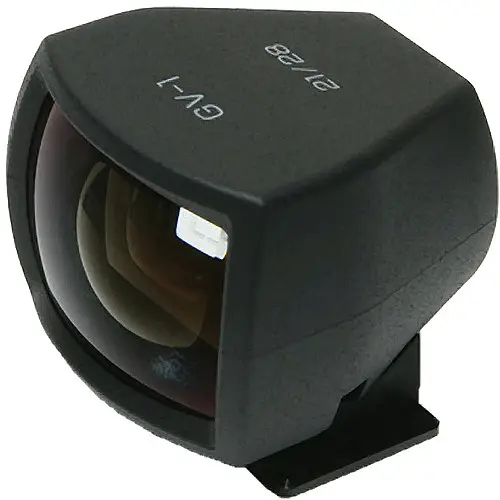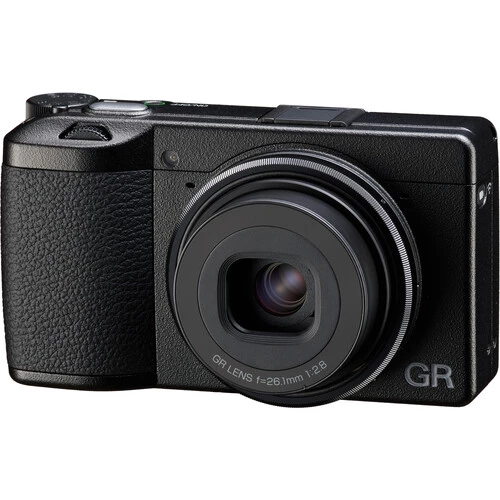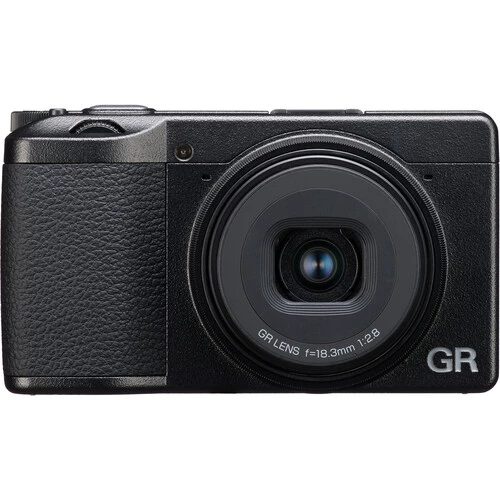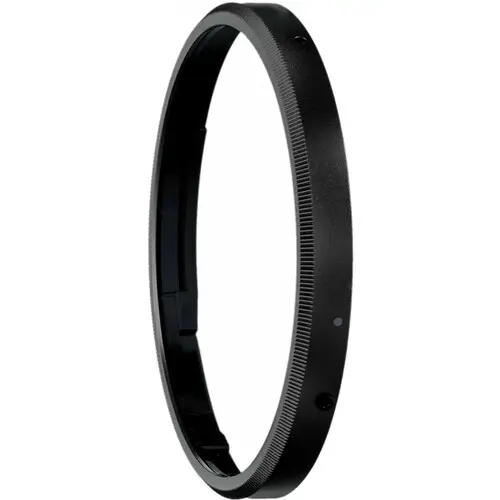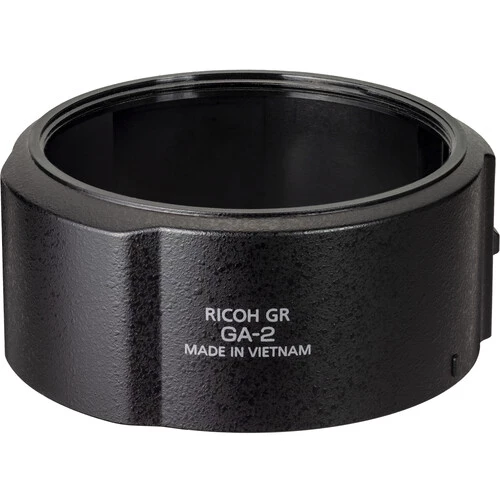Ricoh GN-1 Overview
Key Features
- For GR III Digital Camera
- Stylish Black Metal Finish
- Protects Lens Barrel Exterior
Accessorize your Ricoh GR III digital camera with the dark gray GN-1 Ring Cap. This ring protects the exterior of the lens barrel at the interface where the optional GA-1 Lens Adapter connects. Aesthetically, though, its sleek dark gray metal finish offers a stylish contrast to the stealth black finish of the camera body itself.
Ricoh GN-1 Overview
Key Features
- For GR III Digital Camera
- Stylish Dark Gray Metal Finish
- Protects Lens Barrel Exterior
Accessorize your Ricoh GR III digital camera with the dark gray GN-1 Ring Cap. This ring protects the exterior of the lens barrel at the interface where the optional GA-1 Lens Adapter connects. Aesthetically, though, its sleek dark gray metal finish offers a stylish contrast to the stealth black finish of the camera body itself.
Ricoh GN-1 Overview
Key Features
- For GR III Digital Camera
- Stylish Blue Metal Finish
- Protects Lens Barrel Exterior
Accessorize your Ricoh GR III digital camera with the dark gray GN-1 Ring Cap. This ring protects the exterior of the lens barrel at the interface where the optional GA-1 Lens Adapter connects. Aesthetically, though, its sleek dark gray metal finish offers a stylish contrast to the stealth black finish of the camera body itself.
Ricoh GV-3 Overview
The Ricoh GV-3 External Viewfinder is designed for the Ricoh GR IIIx camera system. The GV-3 attaches to the camera body via the hot shoe and stores nicely in the included case when not in use. Highlights of the GV-3 include 40mm frame and 1:1 aspect ratio marks.
- Includes 40mm equivalent frame lines (35mm film equivalent)
- Mounts to GR IIIx camera systems via hot shoe
- Has 1:1 aspect ratio marks
- Includes carry case
Ricoh GT-2 Overview
Key Features
- For GR IIIx Digital Camera
The GT-2 Tele Conversion lens from Ricoh is designed for use with the GA-2 Lens Adapter and the GR IIIx digital camera. When mounted, the camera automatically detects the GT-2 as a tele conversion lens and extends the focal length to approximately a 75mm equivalent with the camera's crop mode, or to approximately 107mm in the secondary crop mode.
Ricoh I-USB166 Overview
Key Features
- USB Type-C to USB Type-C Cable
The Ricoh I-USB166 USB Cable connects a compatible digital camera to a computer or power source for charging. It features a USB Type-C connector on each end.
Ricoh GW-4 Overview
Key Features
- For GR III Digital Camera
- Magnification: 0.75x
- Provides 21mm Equivalent Focal Length
- Requires Additional GA-1 Adapter for Use
- Includes Petal-Shaped Lens Hood
Dedicated to the Ricoh GR III digital camera, the GW-4 Wide Conversion Lens is a 0.75x-magnification lens, which provides a wider, 21mm equivalent focal length. Use of this adapter requires the additional GA-1 Lens Adapter for attaching to the camera and, additionally, a petal-shaped lens hood is included to reduce flare and ghosting.
Ricoh Overview
Key Features
- For GXR Camera System
- Attaches via Hot Shoe
- 21mm and 28mm Frames
- Case Included
The Ricoh GV-1 External Viewfinder mounts to the Ricoh GXR camera system, including the GR Digital Camera. Simply attach the GV-1 via the hot shoe and view your intended shots using the 21mm and 28mm frames (35mm equivalent). When you prefer to compose your images using the camera's LCD display, the GV-1 can be stored in the included case.
Includes 21mm and 28mm equivalent frames (35mm film equivalent)
Mounts to GXR camera systems via hot shoe
Includes storage case
Ricoh GR IIIx HDF Overview
Key Features
- Built-in Highlight Diffusion Filter
- 24.2MP APS-C CMOS Sensor
- GR Engine 6
- 40mm f/2.8 Lens (35mm Equivalent)
- 3-Axis Shake Reduction System
- 3" 1.037m-Dot Touchscreen LCD
- Full HD 1080/60p Video Recording
- Bluetooth LE and Wi-Fi
- Hybrid AF System, Macro Mode
- USB-C Port, SD Card Slot
Incorporating a newly developed highlight diffusion filter (HDF), the Ricoh GR IIIx HDF allows users greater control over the style of their imagery while maintaining exceptional image quality. Captures with HDF enabled are noticeably softer and feature an emphasize on highlights, resulting in a more nostalgic look that resembles film photography or vintage movies. The default setting of the Fn button is now set to turn HDF on or off. This model also features a dark silver shutter-release button to distinguish itself from previous GR series models. Lastly, new firmware allows Zone Select AF as well as up to three white-balance settings to be preprogrammed as the base white balance.
HDF Model Enhancements
- Dark silver shutter-release button
- HDF on/off is assigned to Fn button by default but can be assigned to other function buttons
- Up to 3 custom white balances can be registered
- Zone-select AF allows users to select any zone within the 3x3 focusing area
High-Resolution GR Lens
The newly designed 26.1mm GR lens provides a 40mm standard angle of view in the 35mm format, delivering images with a natural perspective and a truthful sense of depth for a completely different type of street photography. High-refractive index low-dispersion glass lenses and aspherical high-precision molded glass lenses are optimally placed in the lens construction to suppress optical distortion and chromatic aberration, delivering a high level of sharpness. The camera also comes equipped with an ND (Neutral Density) filter, which closes the aperture down by two stops to capture high-contrast and high-resolution images with a variety of scenes and subjects under varying shooting conditions. Its nine-blade diaphragm mechanism creates a natural bokeh effect and a truthful sense of depth at open and larger apertures, while capturing beautiful light beams at closed-down apertures.
24.2MP APS-C CMOS Sensor and GR Engine 6
An updated 24.2MP APS-C CMOS sensor pairs with the new GR Engine 6 to produce high-resolution 14-bit DNG or JPEG stills with impressive tonality, natural color rendering, and high sensitivity from ISO 100-102400. In addition to stills shooting, the GR IIIx HDF is also capable of recording Full HD 1080 video at 60p, 30p, and 24p frame rates.
Hybrid AF System
The hybrid AF system combines a contrast-type AF mechanism with a phase-detection-type AF mechanism ensuring high-speed focusing operation. During autofocus shooting, this AF system detects the subject's face or eye with precision, focuses on it, and indicates the in-focus position on the LCD display using the AF frame. When the camera detects multiple faces, it automatically distinguishes the main subject from secondary ones and indicates this on the focus frame.
Shake Reduction System
Shake Reduction (SR) minimizes camera shake on three axes, including yaw, pitch, and roll to provide up to 4 stops of compensation and produce crisp, sharp images even when taking split-second snapshots or capturing images with challenging low-light conditions.
Compact and Lightweight Design
The GR IIIx HDF is designed to be extremely compact, functional, and portable. The exterior frame is made of rigid magnesium alloy for improved durability while being carried or stored. It provides a host of user-friendly features including a short start-up time of approximately 0.8 seconds, control dials conveniently positioned next to the four-way controller, and effortless touch-screen operation. These features enhance operability and allow the user to swiftly react to once in a lifetime opportunities.
HD LCD Monitor with Touch-Screen Operation
A 3" high-definition LCD monitor with touch-screen operation provides swift, intuitive control of various camera functions such as AF frame shift, menu selection, and image advance/magnification during playback. An outdoor view setting allows you to instantly adjust the monitor's brightness to the desired level for greater visibility in difficult lighting conditions.
Image Control and Visual Effects
The GR IIIx HDF features a creative image control function, which integrates effect modes into conventional image setting operations. Using 11 basic image control modes, you can easily adjust various parameters such as hue, saturation, key, contrast, and graininess to the desired level. A set of adjusted parameters can also be added as a custom setting to the image control function menu.
Advanced Image Editing
The GR IIIx HDF provides in-camera RAW editing so you can edit a captured image by adjusting such parameters as recoding size, aspect ratio, white balance, and exposure compensation, all without the need of a PC. The camera also lets you retain the adjusted parameters after the initial RAW-data development is completed, making it possible to make minute readjustments of the already developed image.
Bluetooth and Wi-Fi
The GR IIIx HDF provides wireless functions for easy pairing with mobile devices such as smartphones and tablets. By installing the dedicated Image Sync app, you can transfer captured images to a mobile device, display a live-view image on the monitor, change various settings remotely, release the shutter from a distance, and upload captured images to various social media platforms with ease. You can also send your mobile device's location data to the camera and record the data on captured images. An auto resize function automatically reduces the image size before transmitting it to a mobile device.
Ricoh GR III HDF Overview
Key Features
- Built-in Highlight Diffusion Filter
- 24.2MP APS-C CMOS Sensor
- GR Engine 6
- 28mm f/2.8 Lens (Full-Frame Equivalent)
- 3-Axis Shake Reduction System
- 3.0" 1.037m-Dot Touchscreen LCD
- Full HD 1080/60p Video Recording
- Bluetooth LE and Wi-Fi
- Hybrid AF System, Macro Mode
- USB-C Port, SD Card Slot
Incorporating a newly developed highlight diffusion filter (HDF), the Ricoh GR III HDF allows users greater control over the style of their imagery while maintaining exceptional image quality. Captures with HDF enabled are noticeably softer and feature an emphasize on highlights, resulting in a more nostalgic look that resembles film photography or vintage movies. The default setting of the Fn button is to turn HDF on or off. This model also features a dark silver shutter-release button to distinguish itself from previous GR series models. Lastly, new firmware allows Zone Select AF as well as up to three white-balance settings to be preprogrammed as the base white balance.
HDF Model Enhancements
- Dark silver shutter-release button
- HDF on/off is assigned to Fn button by default but can be assigned to other function buttons
- Up to 3 custom white balances can be registered
- Zone-select AF allows users to select any zone within the 3x3 focusing area
24.2MP APS-C CMOS Sensor and GR Engine 6
Featuring an updated design, a 24.2MP APS-C CMOS sensor pairs with a new GR Engine 6 to produce high-resolution 14-bit DNG or JPEG stills with impressive tonality, natural color rendering, and high sensitivity from ISO 100-102400. In addition to full-resolution, wide-angle images, a pair of useful crop modes—35mm at 15MP and 50mm at 7MP—let you simulate the look of working with longer focal lengths.
In addition to stills shooting, the GR III HDF is capable of recording Full HD 1080 video at 60p, 30p, and 24p frame rates.
Prime Wide-Angle Lens
A fixed prime 18.3mm lens offers a comfortable 28mm equivalent wide-angle lens, which is complemented by a bright f/2.8 maximum aperture to suit working in a variety of lighting conditions. The optical construction incorporates six elements in four groups, including two aspherical elements that help to reduce spherical aberrations and distortion for improved sharpness and accurate rendering. Two focusing modes also suit working with general subjects, from 3.9" to infinity, while a dedicated macro setting benefits working with close-up subjects within a 2.4-4.7" range. An internal two stop-effective (ND 0.6) filter is also available for either slowing the shutter speed or permitting working with a wider aperture setting, and the lens has a nine-blade diaphragm to contribute to a smooth bokeh quality. Additionally, the redeveloped lens design also results in greater contrast and is 1.5mm thinner than previous GR/GR II digital cameras.
Shake Reduction System
Featured for the first time in a GR camera, a 3-axis Shake Reduction System helps minimize the appearance of camera shake in order to promote sharper handheld shooting at slower shutter speeds. The Shake Reduction System has been optimized for use with the built-in 28mm-equivalent lens, which renders it smaller and more effective. Additionally, the SR unit also offers moiré reduction and dust removal capabilities.
Body Design
- The hallmark feature of the GR-series has been its compact, pocketable size while still retaining a large image sensor and bright prime lens.
- Integrated 3.0" 1.037m-dot LCD features a capacitive touchscreen design for intuitive, familiar operation during shooting, playback, and menu navigation.
- The rear layout of the camera has been completely redesigned and prioritizes a larger, more comfortable thumb grip along with easily accessible physical dials. Additionally, the ADJ lever, FN button, and Touch AF operations can be programmed to handle specific assignable functions for more personalized control.
- Start-up time has been reduced to 0.8 sec and Hybrid AF performance has been quickened for more seamless operation.
- Integrated Bluetooth LE and Wi-Fi afford wireless connectivity between the camera and a paired mobile device, allowing you to embed location info within your files as well as transfer files to your mobile device, even when the camera is turned off.
- Included DB-110 rechargeable lithium-ion battery offers approximately 200 shots per charge.
- USB-C port allows you to transfer files or recharge the battery in-camera.
Ricoh GN-2 Overview
Key Features
- For GR IIIx Digital Camera
- Stylish Black Finish
- Protects Lens Barrel Exterior
Accessorize your Ricoh GR IIIx digital camera with the black GN-2 Ring Cap. This ring protects the exterior of the lens barrel, and its sleek black finish offers a stylish finish to the black finish of the camera body.
Ricoh GA-2 Overview
Key Features
- Attaches GT-2 Lens to GR IIIx Camera
Dedicated to the Ricoh GR IIIx digital camera, the GA-2 Lens Adapter is required for attaching the GT-2 Tele Conversion Lens to the camera's built-in lens.
- ‹‹
- ‹
- 1
- ›
- ››

